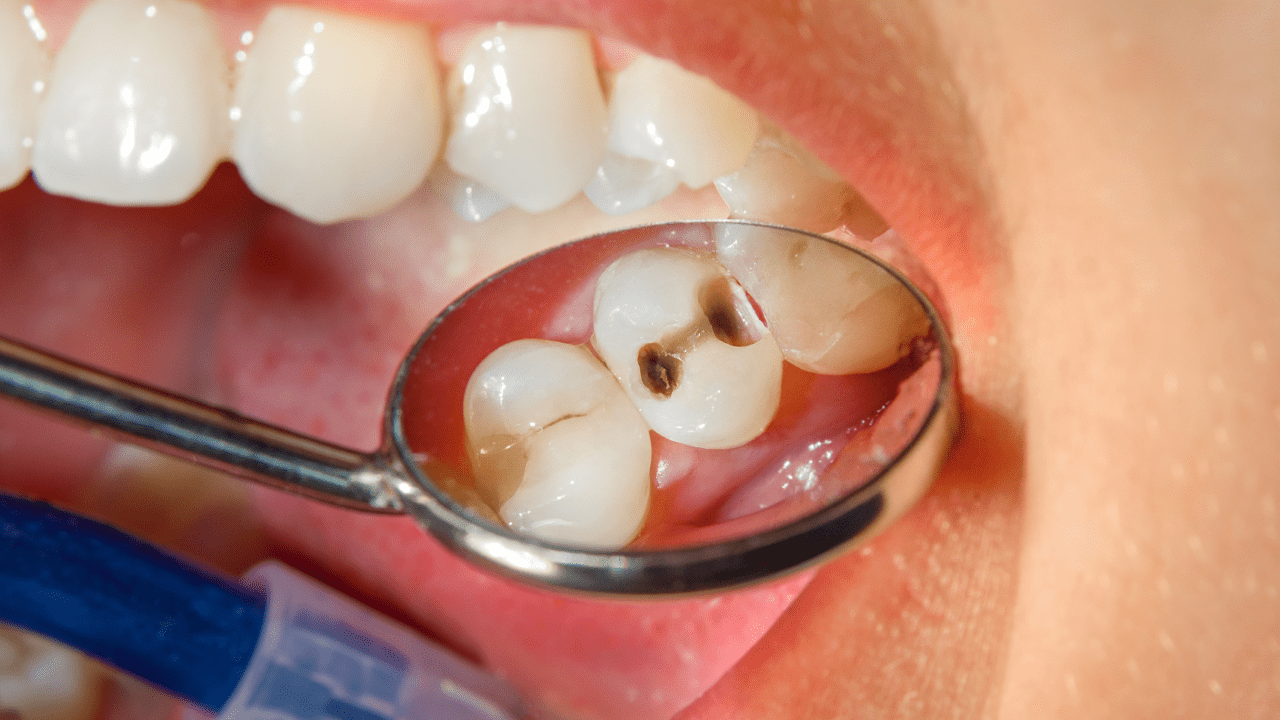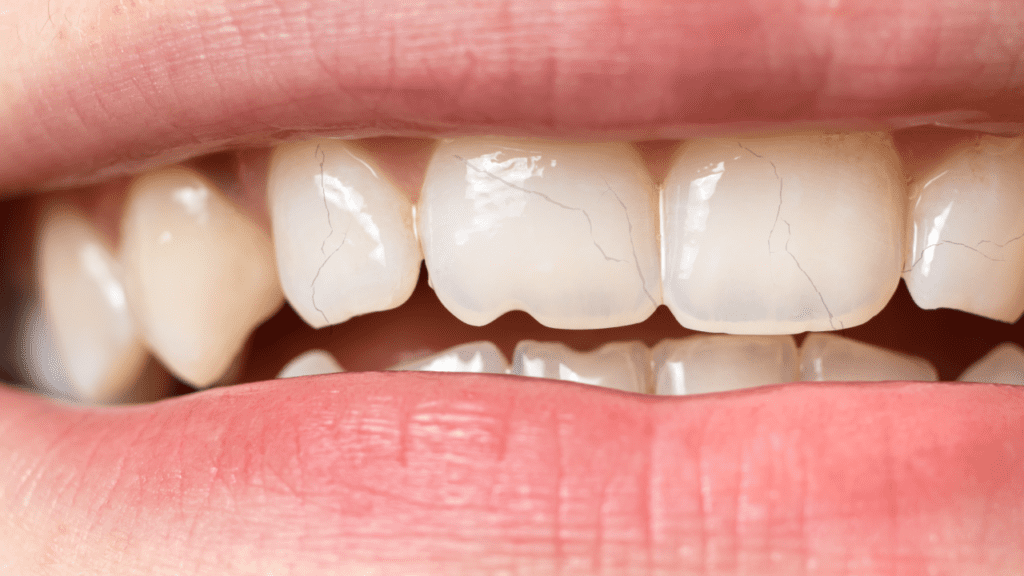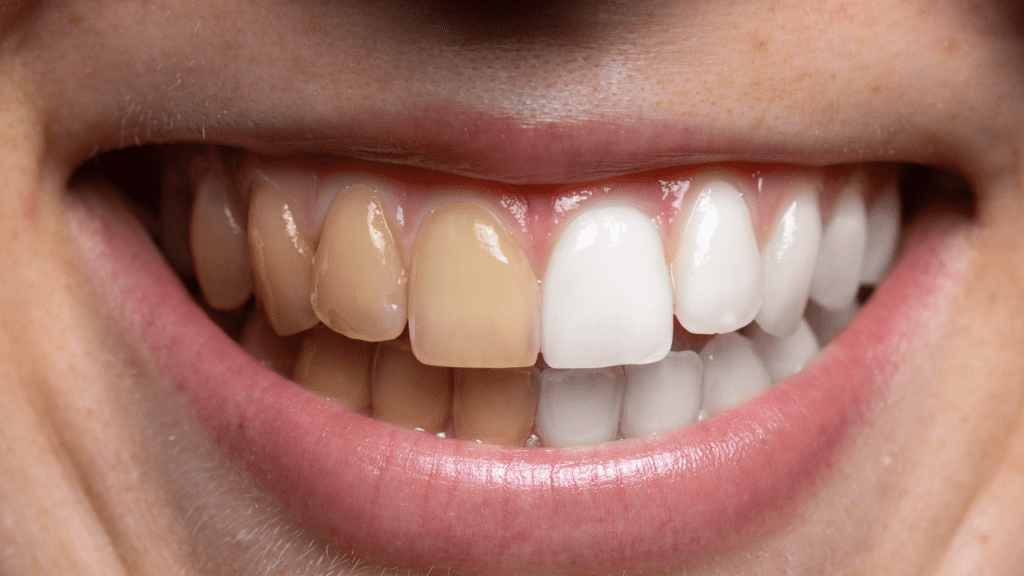Dental cavities are tiny holes formed on the rugged surface of the teeth. It happens due to decay over time, and you might not even be aware of the cavity until you notice specific symptoms. If left without attending, a minor cavity can cause enamel to break down further and develop into a large cavity that is often painful and requires the tooth to be eradicated to prevent the pain.
Cavities are manageable, and early treatment can enable you to recover your tooth and restore it to a healthy state. They also require better dental hygiene care and will eventually be repaired when given the right care. Once you have a cavity, you have no option but to see the dentist. When you know the signs of a small cavity, you will be able to react in time and get the proper treatment.
What Does A Small Cavity Look Like?
A small cavity might not initially be clinically visible without using a tooth explorer to feel it. Sometimes, a dentist has to probe your tooth to determine whether the cavity is there or not. A small cavity looks like a slight tooth abrasion, gradually developing into something else. It might seem like nothing serious, and this is what small cavities are meant to look like. A cavity will feel sticky or be a hole when examined with a dental prober, or explorer.
However, it has the potential to develop into something even more severe, and this means attending earlier to them is preferable. A small cavity might look harmless and wholly innocent, and noticing it takes time and observation. It might appear like a dark spot at the start, but gradually it gets wider and wider, changing into something much worse and more challenging to manage.
Is a Small Cavity a Big Deal?
Sometimes a cavity happens, even with the best hygiene and diet. The good news is when you take care of a small cavity early-on, it is easily treatable. If it is left untreated, you may experience sensitivity and even a toothache. The best thing you can do is try to prevent tooth decay, but if you get a small cavity, it is important to take care of it right away.
If the cavity has been discovered during a dental checkup, it can be treated early, and the cavity can be managed from the very early stages. This increases your chances of repairing the cavity and growing over the damaged areas to restore your teeth to their working state. A small cavity can be a big deal if ignored, but when you attend to it early enough, you will prevent it from becoming a big deal or source of worry for you.
Signs You May Have a Small Cavity
If you think you might have a small cavity, here are some of the most common symptoms you may notice.
Toothache
Your tooth may ache, and occasionally, you might even find yourself poking your tongue against it. The pain can get very acute when you eat something sweet, cold, or hot.
Sensitivity
You might also find that the tooth is becoming more sensitive to temperature changes than it used to be in the past. As a result, you will find it hard to drink something hot or cold due to the reaction you will get and the pain you will feel.
Dark spots on a tooth
Discolored spots signify something is amiss about your tooth. A dark spot on the tooth is also a sign that you may have a small cavity.
Hole in the tooth
This might be a tiny or larger hole that can be felt with the tongue. If you can spot where the hole is in your tooth, you are looking at some more dental procedures on the horizon.
Swelling or bleeding gums
You might experience some bleeding from the gums and a lot of swelling. This may indicate an infection or the need for an antibiotic.
Bad breath
The bad breath that does not go away even after thoroughly brushing your teeth or using mouthwash is another sign of a cavity. If the bad breath is very persistent, this is a sign of possible gum disease.
Can Small Cavities Go Away?
A cavity cannot be healed or reversed, but you can always address the problem of tooth decay, and if this decay is taking place in the enamel, you can more easily reverse it. Additionally, suppose your teeth are losing minerals. In that case, you can take the necessary steps to stop that process from allowing the enamel to regain strength and grow to health before a cavity develops.
You can also brush your teeth after eating or drinking sugary beverages, as this helps to remove any debris that remains on the teeth. Small cavities can be managed and, when properly taken care of, will soon disappear or seal over without spreading the damage further. The small cavities are especially easy to heal during the early stages, and the recovery is more effective when the cavity has not developed into something more serious.
What to Do If You Have a Small Cavity?
Generally, it is recommended that you see a dentist for routine dental care and a small cavity. The help you get in the early stages can be beneficial. A dental examination will be required to determine how bad the damage is and what can be done about your case. The small cavity can be restored if it has not spread very deep, ensuring that it has been healed and restored to working and healthy condition.
Be sure to get your next appointment if you are experiencing a small cavity. Get the assistance you need on time and have a dentist look at the cavity and how severely it has progressed in infection and overall encroachment on your tooth. The early consultation will also allow a dentist to look at it, which means they will be in a better position to recommend treatments to be used. They will also give you the right course of action to ensure that your cavity has been taken care of.
The small cavity is much better since it will be much easier to manage when it is noticed in the very early stages of its development. As such, it will not have gotten worse when treated at this time, and the chances of it recovering and your teeth healing will be significantly improved. Better recovery is encouraged by early treatment, and you get to manage your teeth better.
Treatment for Tiny Cavities
Treatment for small cavities is the same for any cavity. Here are the treatments for small cavities that can be performed by a professional dentist.
Fluoride treatment
Fluoride treatment is great for small cavities that have just started. It’s very easy and non-invasive. This is why early detection of cavities is essential. A fluoride treatment is a paste containing a large amount of fluoride. This paste is placed on top of the cavity and then hardens and covers up the cavity.
Fillings
Fillings are the most common procedure for cavities. This is the best option if the cavity has progressed beyond the early stage. Tooth decay is removed by using dental handpieces and instruments and filled with composite resin materials to seal the tooth from further decay or damage.
There are other treatments like crowns, root canals, and tooth extractions, but these are usually reserved for larger cavities when decay has progressed into the inner nerveof the tooth.
How to Prevent Small Cavities
If you want to avoid costly dental bills, or you already have one cavity and do not want to develop more serious dental problems, then prevention is critical.
It’s simple, but brushing your teeth twice daily helps prevent cavities from developing. Use a toothpaste that contains fluoride, which will help eliminate bacteria and other debris forming plaque on your teeth at the gum line. Fluoride toothpaste will also help remineralize teeth that are susceptible to decay and strengthen tooth enamel.
Some of the other methods you can use to prevent cavities from developing include:-
- Flossing your teeth every day
- Controlling the amount of sugary food you eat
- Brushing your teeth after eating sticky or sugary foods
- Ensure you drink water every day.
- Consult with your doctor about the supplemental treatment that uses fluoride.
- If you have a dry mouth, consult a doctor since this is likely to lead to tooth decay.
- Chewing sugar-free gum is also recommended as it has been shown to reduce bacteria which has the resultant effect of causing cavities.
- Ask about dental sealants and how to use them to protect your teeth and your child.
Conclusion
A small cavity can be hard to notice, which is why going for routine dental visits is important. When a small cavity is caught early, it is important to treat it to restore the tooth to its natural function and appearance. A smaller cavity is less likely to cause pain and infection, but if left untreated, can lead to pain, difficulty eating, and even tooth loss.
When you notice pain or swelling of the gums, you should also visit the dentist, as they can spot early signs of a cavity and discuss the best way to proceed. Usually, this will be in the form of a filling which helps get your cavity covered. Taking good care of your teeth is also advised, and you should ensure that you give your teeth proper care and attention. Brushing daily is one of the steps you should take to take care of your teeth and prevent any small cavities from developing into problems.
https://www.healthline.com/health/dental-and-oral-health/what-does-a-cavity-look-like
https://www.mayoclinic.org/diseases-conditions/cavities/symptoms-causes/syc-20352892
https://www.ncbi.nlm.nih.gov/pmc/articles/PMC5034904/
https://www.mouthhealthy.org/all-topics-a-z/tooth-decay
https://www.nidcr.nih.gov/health-info/tooth-decay/more-info/tooth-decay-process
Related Articles
Cavity Vs Stain: How To Tell The Difference + Treatment and Prevention
Marcus Ramsey has been a professional writer for over seven years. He has talked about and produced content for industries like Dentistry, Healthcare, and more.
Erica Anand is a certified dental expert. She holds a BA in Chemistry and a Doctorate of Dental Surgery from Stony Brook University. After completing a two-year pediatric dentistry program, she now runs a private practice focusing on preventive dentistry and is a member of the American Association of Dental Consultants.






